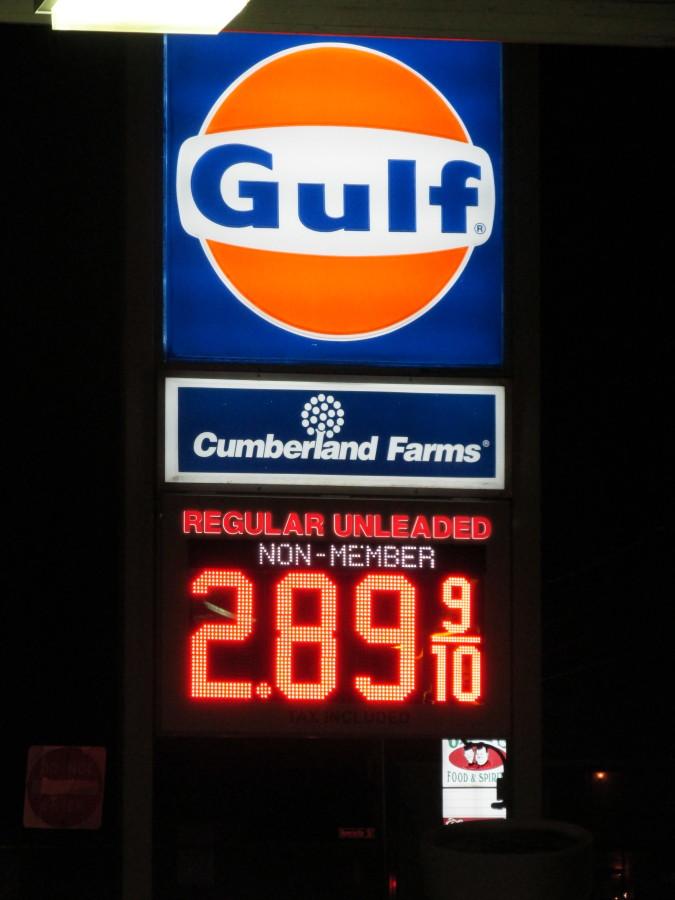What price are we really paying for cheap gas? Environmental harm
November 12, 2014
The film War of the Worlds aired on TNT many times this summer, and despite my best efforts I sat down to watch it.
There is one scene where the protagonists, who are driving out of New York City, stop at a gas station and the price for a gallon of gas was $1.54. I thought I would never see gas prices fall below $3.00 again in my lifetime.
Then everything changed when the oil industry attacked; the Dakotas that is. Gas prices in New Hampshire have dipped to as low as $2.79 (budget gas on Elm Street).
At its surface this seems to be a wonderful thing. Gas prices are low so our wallets can stay bigger longer. It frees up a little bit of “pocket change” to go spend on other things. Life is great, or is it?
Not to rain on the gas parade, but the drop in gas prices poses serious economic and environmental implications to the population of the United States.
The Gas found in Bakken (ND) is found in the form of shale rocks which on the surface seems to be a great deal better for the environment than coal.
However shale oil creates exponentially more methane (which is 105 times more damaging than CO2 when talking about climate change, seriously look it up) than natural gas does.
Not to mention, that in order to extract shale oil dangerous chemicals must be pumped into the ground that, due to the water cycle, end up in our drinking water.
In addition, the space created by drilling companies largely goes unfilled and as a result causes seismic events and sinkholes, a growing problem in the US.
Finally lower gas prices fosters a greater tendency to drive further contributing to greenhouse gasses.
It is absolutely a wonderful thing that we are not as dependent on OPEC as we were and yes, the oil fields have created jobs in the US that we cannot outsource but, as any econ major will tell you, this is a bubble.
The price drop is simply due to an increase in product it’s the basic concept of supply and demand.
This is going to lead to businesses seeing an increase in profits but this is simply due to the reduction in overhead costs.
Employers should be wary about these profit numbers as they do not actually reflect real change, because these prices are only temporary.
Secondly this boom created a new economy in the Dakotas, akin to the old gold rush towns where thousands of people moved in to take advantage of natural resources.
However these resources dry up leaving the towns economy horribly devoid of revenue and economically depressed.
In short, yes it is noce to pay less at the pump, I am not denying that. What I am saying is that all of us as American citizens should be careful about our dependency on these new lower prices.



